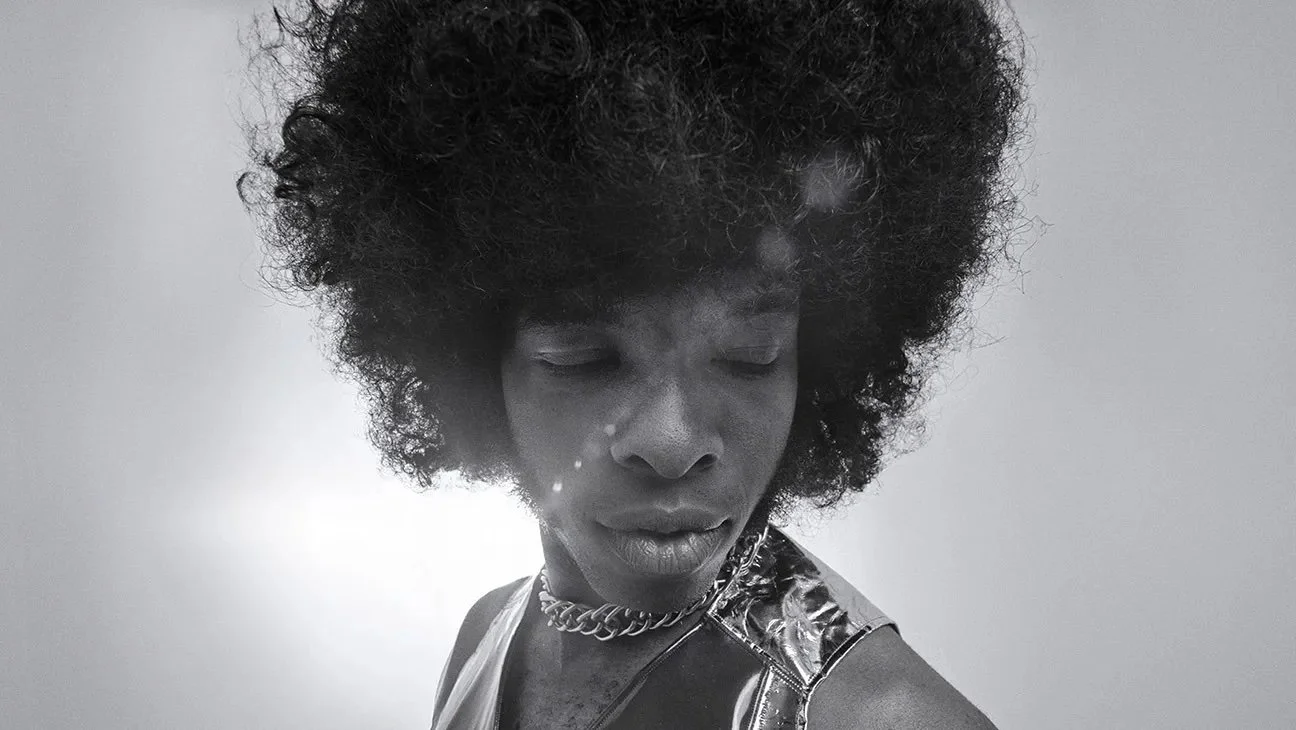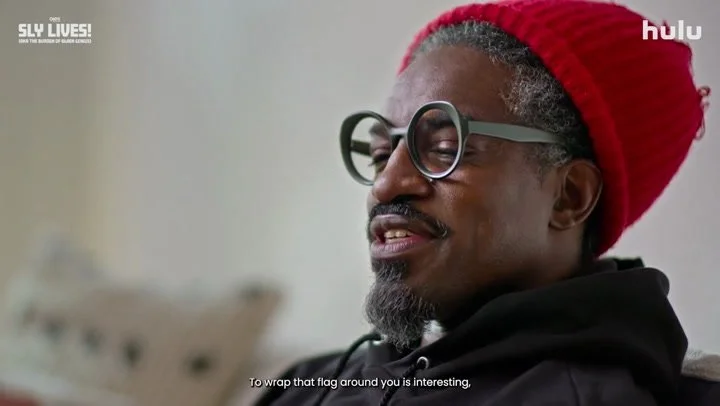THE NITTY GRITTY: Ahmir "Questlove" Thompson's SLY LIVES! (aka The Burden of Black Genius) (dir by Ahmir "Questlove" Thompson, 112mns, Hulu, USA)
Ahmir "Questlove" Thompson's documentary on 60's & 70's music pioneer Sylvester Stewart and his seminal band Sly & The Family Stone is both familiar and unique.
Familiar because we've seen this doc of a music star's rise and fall before. Unique because Thompson wants to drill down deeper. He wants the audience to understand the undiscussed stresses American black stars carry when they breakthrough to mainstream success.
Like Thompson's 2021 Academy Award winning doc SUMMER OF SOUL (also on Hulu) about the 1969 Harlem Cultural Festival, SLY LIVES! meets us at the intersection of culture shaping music, the socio-economic furnace that birthed it, and the things we can learn from the story.
Sylvester Stewart, aka Sly Stone, and his band the Family Stone, have created some of the most influential American rock-pop-funk-soul music. . .ever. DANCE TO THE MUSIC, THANK YOU, FAMILY AFFAIR, EVERYDAY PEOPLE, I WANNA TAKE YOU HIGHER-these songs not only get constant play to this day but they are endlessly sampled by artists of successive generations for new hip-hop, pop, soul hits.
Sly and the Family Stone, a band with men, women, black, white, was groundbreaking in its heyday, AND inspired the likes of Prince and the Revolution and others in understanding that the visual of the music and band were a key part OF the music.
Beyond that, Sly's music is still some of the most euphoric, energetic, unbelievable music you will ever hear. It really does take you higher.
Sly at the height of his fame and magnetism.
Thus the tragedy of Sly's fall into drugs, inability to maintain stardom or relevance from the mid 70's onwards is acutely painful.
And yet, at the same time, one does wonder if it could have been any other way. Sly and the Family Stone were so much of their time and their popularity so meteoric, it's hard to believe it could have been maintained much longer than it was (about 9 years from 1966-1975).
Thompson does an admirable job weaving together biographical info of Sly's life quickly in the first act to get us where we need to be. Sly came out of church music (like so many great secular black artists), was a musician very young (like Michael Jackson), was a popular Bay area DJ, and an incredible producer of 60's records that ran the gamut of British invasion type pop to soulful R&B hits (helping to explain his preternatural ability to mix genres, styles, approaches within one song).
Andre 3000 of OutKast among other artists get candid about music, fame, race, and personal struggles.
Filmmaker Thompson peppers the doc with interviews with black musical artists of the last few generations: Chaka Khan, George Clinton, Andre 3000, Q-Tip, and D'Angelo who are all willing to sit down and be vulnerable as they talk about Sly and their own journeys as black artists who have similarly passed through the looking glass of fame.
D'Angelo makes the painful observation that white musical artists often get to go out like Vito Corleone in THE GODFATHER-with their grandkids in a tomato garden having passed on generational wealth. But black artists have such a harder road, such a more complicated path. And the non-black audience, even the black audience, may have no idea.
The United States has always been a wrestling match between a movement that is genuinely committed to a more perfect union and a movement that is uncomfortable in acknowledging the hypocrisies, horrors, inequities that would complicate an image they want to hold of the country as already perfected.
Sly himself represents that conflict as Thompson slips in (don't worry no spoilers) a final word from the great musician to close the movie that shows a moral and ethical self-awareness even above the entire dialogue we've been engaged in the entire movie.
The doc is great. Not least because you are dancing for at least half of it to tracks so scaldingly brilliant, you liquify.
At the end though, you touch back down on planet earth and wonder. Will we ever achieve the humility and self-awareness to create a healthier, more forgiving national environment for black artists?
Craig Hammill is the founder.programmer of Secret Movie Club



